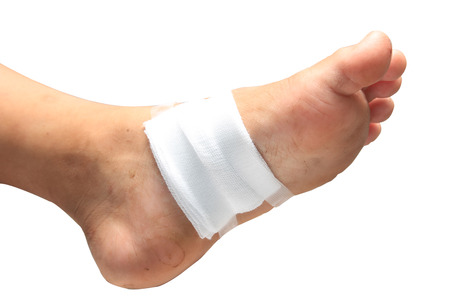
You love the outdoors. They call to you regularly and so you find yourself hiking in the mountains and crossing some shallow streams or even some raging rivers. Your clothes and shoes are soaked through but you are a survivor. A natural outdoorsman. You are getting to the end of your hike for the day and you make camp. Your feet are soaked, freezing, and have changed color a bit. As you take off your socks and shoes you realize you are having a hard time feeling your feet and that they are tingling. What is ailing your feet? Should you call a podiatrist local to the area? You may want to, because you may have trench foot.
When your feet are exposed to cold and moist conditions for long periods of time it can cause trench foot. This condition was most common during Trench Warfare in World War I where it received its namesake. The soldiers who battled in the trenches were up to their knees in water. The water would soak through their shoes and make them wet and cold for the duration of their stay in the trenches. Soldiers are not the only ones who can get trench foot though. Anyone who get their feet cold and wet for long periods of time are likely to get this condition.
Stage 1
The blood vessels constrict due to the cold temperatures. Moisture is trapped in the shoes and lack of oxygen circulating makes the foot become discolored and puff up. The foot starts to look red, puffy, and becomes very tender. Numbness, tingling and burning start to set in. If the foot is warmed at this stage, the foot will stay puffy and tender for days to weeks after the warming.
Stage 2
Because there is a lack of circulation to the vessels in the foot, this stage will cause damage to the foot and its surrounding tissues. The tissue will swell from all of the extra trapped fluid. If the foot is warmed, ulcers can appear. These ulcers will cause the underlying skin to die. When the ulcers fall of the foot, only dead tissue will be left behind.
Stage 3
The final stage of trench foot makes the foot appear almost normal. The swelling of the foot will lessen and although it will look normal, it will still feel a little funny. The foot will start to sweat excessively, feel tingly, feel sensitive to cold, will itch and become sore.
If you suspect you have trench foot, do not wait and seek the help of a podiatrist right away. Syracuse Podiatry, located in Fayetteville, New York, has the expertise to treat your feet. Dr. Ryan L. D’Amico and his highly trained staff can help treat your trench foot today. Call 315-446-3668 or make an appointment online today.
